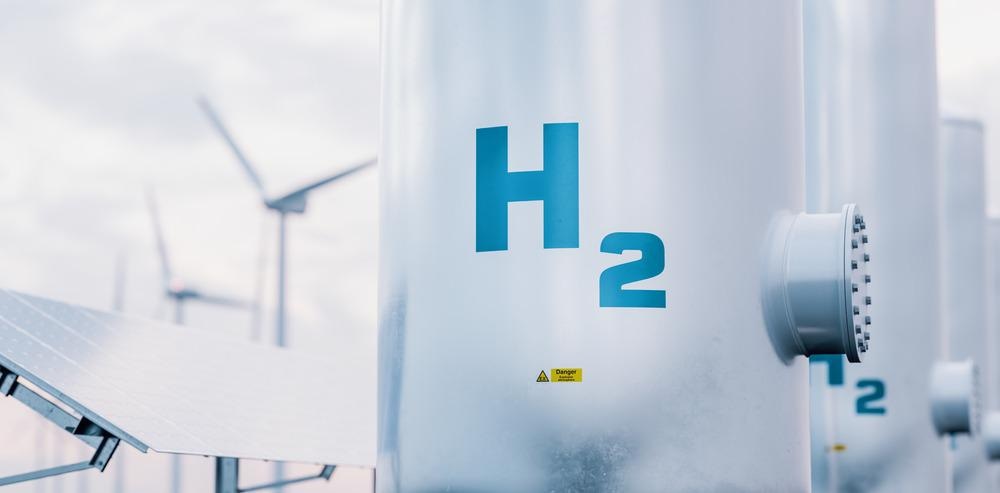The Western world has greatly benefited from the use of fossil fuels. Over the past two centuries, countries in the West have industrialized with help of non-renewable energy and are now reaping the benefits of having gone through that process. The use of fossil fuels enabled significant growth in the Western world and facilitated important advancements in productivity, wealth, and living standards. The world’s current developing countries have the right to share the same benefits but the use of fossil fuels to power this growth is unfeasible.

Image Credit: petrmalinak/Shutterstock.com
We are experiencing the effects of climate change more and more. The world is faced with the phenomenal task of reducing its carbon emissions to meet climate change goals and becoming carbon neutral.
As developing countries urbanize, their populations grow, and they seek to expand their horizons, their energy demands increase. However, with the world making significant efforts to switch from fossil fuels to renewables, developing countries cannot follow the same path of development that the Western world did; they will need to establish infrastructure to support the widespread use of renewable energy.
The Growing Energy Needs of French Guiana
Over recent years, French Guiana has experienced rapid population growth, resulting in a huge energy deficit where the needs of the growing population are not being met.
To meet the country’s growing demands, CEOG, an innovative multi-megawatt power plant, is being constructed to generate clean energy around the clock. The project, which fits French Guiana’s energy strategy, will be connected to the grid via EDF’s power station located in Saint-Laurent-du-Maroni, where it will produce sufficient energy to meet the country’s current energy needs as well as its anticipated future needs. HDF Energy is developing the project.
Unlike other sources of renewable energy, the CEOG plant provides a continuous rather than intermittent source of energy, meaning that it can power homes and businesses all day and night without interruption. It achieves this via generating power from photovoltaic panels (solar panels) and storing it in the form of hydrogen.
As well as not producing emissions, the plant is noise-free. It emits steam only. The team behind CEOG plan to deliver a baseload of 10 MW of electricity between 8 am and 8 pm, and 3 MW from 8 pm to 8 am. The plant will supply half of the energy required by Saint-Laurent-du-Maroni and Mana.
Construction work began in September 2021, although the CEOG plant will not be fully commissioned until 2024.
The project will ensure a sustainable power supply for French Guiana as well as act as a template for other countries whose energy demands are also increasing.
Furthering Global Use of Renewable Energy
Many other renewable technology advances are bringing the clean energy sector closer to achieving a complete takeover from fossil fuels. Scientists are exploring how innovations can address specific barriers to adoption, obstacles that are preventing the clean energy source from being integrated into homes and businesses.
One such advancement is the new high-energy-density solar power technology offered by Naked Energy which is overcoming the problem that renewable energy sources generally require large spaces to generate power. Another example is SolarRoofs.com’s Premium Skyline® Collectors, solar panels that address common consumer concerns over solar panel aesthetics, costs, and installation complexity.
These advancements in technology, alongside country-wide projects such as CEOG, are vital to furthering the use of renewable energy worldwide.
CEOG demonstrates how the intermittent nature of renewable energy, which acts as a major barrier to adoption, can be overcome with the reliable energy storage option of hydrogen batteries. Other countries such as Australia have also undertaken huge projects involving green hydrogen production and energy storage. These examples will likely act as a guide for other countries looking for solutions to the intermittent nature of renewable energy, enabling them to switch to clean energy without compromise.
Countries in the developing world are those that are most likely to benefit from adopting such schemes. As their population and rate of urbanization continue to increase, these countries are often facing an energy deficit that cannot be met by fossil fuels as this would be a step backward in terms of the world’s progression towards climate change goals.
Countries such as China are approaching renewables as part of the industrialization process itself, and other countries are following in their footsteps to establish sustainable energy infrastructure for the future. India is one such country that is fast-adopting renewable energy. While 70% of its energy currently comes from coal, it plans to produce 40% of its electricity from renewable sources by 2030. The CEOG project and emulations of this project may play a vital role in meeting India’s and the world’s energy goals.
References and Further Reading
John A Matthews. Developing countries and the renewable energy revolution. [Online]. OCDE.org. Available at: https://www.oecd.org/fr/dev/developing-countries-and-the-renewable-energy-revolution.htm
Leigh Collins. (2021). Construction begins on world’s largest green hydrogen power plant, part of unique baseload solar project. [Online]. Recharge News. Available at: https://www.rechargenews.com/energy-transition/construction-begins-on-world-s-largest-green-hydrogen-power-plant-part-of-unique-baseload-solar-project/2-1-1077815
SolarRoofs Premium Skyline® Collectors. [Online]. AZo CleanTech. Available at: https://www.azocleantech.com/equipment-details.aspx?EquipID=16
The Project. [Online]. CEOG. Available at: https://www.ceog.fr/theproject
Disclaimer: The views expressed here are those of the author expressed in their private capacity and do not necessarily represent the views of AZoM.com Limited T/A AZoNetwork the owner and operator of this website. This disclaimer forms part of the Terms and conditions of use of this website.